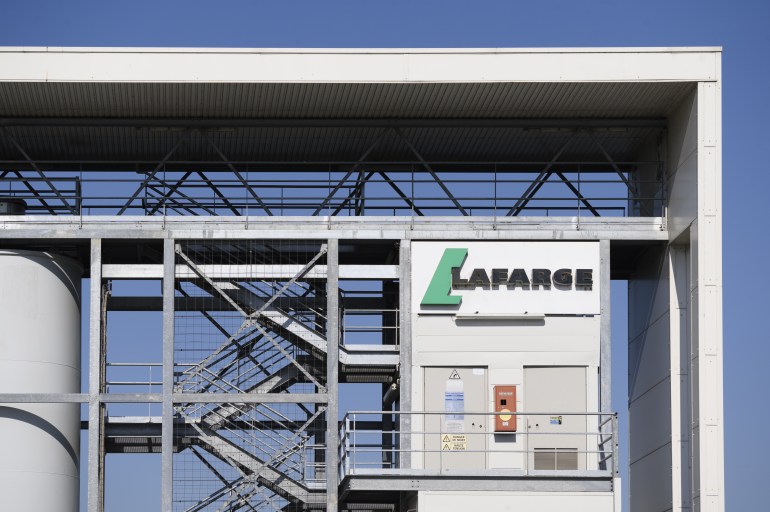Yesterday, Wednesday, the Paris Court of Appeal confirmed the accusation of "complicity in crimes against humanity" involving the "Lafarge" cement company through its activities in Syria until 2014, in a decision welcomed by the civilian parties to the conflict.
A legal adviser to the European Center for Constitutional and Human Rights, which is a party to the case, told Reuters that the Paris Court of Appeal upheld a ruling issued by France's highest court, which stipulated last year that Lafarge could be investigated on charges related to crimes against Humanitarian because it continued to operate a factory in Syria after the outbreak of the conflict in 2011.
"It is our firm belief that this abuse should not be linked to Lafarge, which will file an appeal" today, Thursday, Agence France-Presse quoted one of the company's lawyers as saying.
The decision is another procedural step in a complex investigation, and does not constitute a final verdict in the aforementioned crimes.
The investigation into the case of Lafarge, which is now part of Switzerland-listed Holcim, is one of the most extensive and complex criminal proceedings against companies in contemporary French legal history.
The court's decision will have major repercussions on the company's public image (Anadolu Agency)
The defendants in the case included eight Lafarge employees and managers, former CEO Bruno Lavon, a Syrian-Canadian mediator, and a former Jordanian risk management official.
Holcim said in a statement, "We never support this decision, which is not a judgment on the merits of the case, but rather is intended to determine the extent of the charges under investigation."
The Paris investigative body was invited to issue its decision in the case once again in response to two requests submitted by the "Lafarge" group to nullify the charge of "complicity in crimes against humanity" that is rarely brought against a company, as well as the charge of "endangering the lives of others".
In this lawsuit, which was opened in 2017, it is suspected that Lafarge Group, in 2013 and 2014, through its branch in Syria, paid millions of euros to “terrorist” groups, such as the Islamic State, to continue the activities of a cement factory in the town of Jalabia (northeastern Syria) in the midst of the war.
Investigations revealed that the sums of money believed to have been paid to the Islamic State alone ranged between 4.8 million and 10 million euros.
It is also suspected that the group sold cement for the Islamic State and paid middlemen for raw materials, and the company had invested 680 million euros in building the plant, which was completed in 2010.
welcome the decision
A representative of the European Center for Constitutional and Human Rights welcomed "a symbolic decision", expressing hope that "the investigative judges will be able to carry out their work."
"It is a further step against the impunity of the perpetrators of the worst crimes of economic actors; today it is no longer possible to hide behind the finger of organized ignorance," said attorney Joseph Briham, an agent for about 100 former Syrian employees of the company.
For their part, lawyers Mathieu Pagar and Elise Lugal, attorneys for 50 former Syrian civil servants in the case, expressed "satisfaction" with the decision, describing it as an "important step for the former Syrian employees."
The charges of "complicity in crimes against humanity" and "financing a terrorist organization" have major repercussions on the company's public image.

